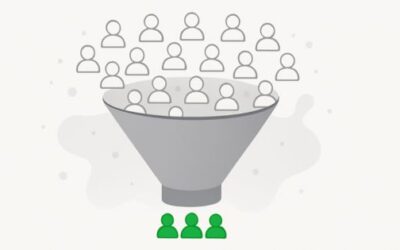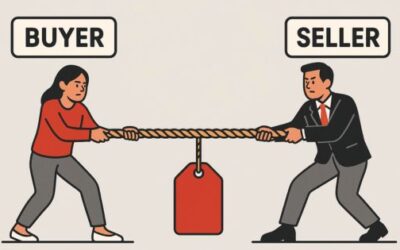If you’re going to become successful at Gap Selling you need to start asking why.
Why?
Kids are great at asking why. They accept the fact that they don’t know very much, so they just move through life, like an information sponge asking why about everything.
It’s kind of liberating if you think about it, if you accept that you don’t know anything. If you’re OK with the fact that you don’t know, then asking why is the natural thing to do.
Anyone who’s spent any time with kids knows exactly what I’m talking about. The incessant question asking, why this, why that, is enough to drive one crazy.
But from a sales perspective, kids are actually on to something.
Great salespeople are like little kids. They’re not OK NOT knowing. They’re not OK with tertiary answers. Great salespeople need to know. They have a burning desire to go deep and have an insatiable intellectual curiosity. The need to know why.
Asking Why is a Gap Selling Principle
 If you want to sell better, you need to learn to ask why. This is one of the keys of Gap Selling. Understanding why a prospect wants to buy is a critical element of their motivation and their sense of urgency. Why is the door to what drives buyers to move, to take action and to decide. When we know why a customer or prospect wants to buy, why they want to change, why they are unhappy, we’re provided with the roadmap to solving their issues.
If you want to sell better, you need to learn to ask why. This is one of the keys of Gap Selling. Understanding why a prospect wants to buy is a critical element of their motivation and their sense of urgency. Why is the door to what drives buyers to move, to take action and to decide. When we know why a customer or prospect wants to buy, why they want to change, why they are unhappy, we’re provided with the roadmap to solving their issues.
Simon Sinek talks a lot about our “Why?” He argues why is our purpose and it’s where our passion to act comes from, and I agree with him. Therefore, as salespeople, if we can understand our prospects why we’re in a better position to win the deal.
Learning to ask why requires a genuine sense of curiosity. Just asking why to be a pain in the ass isn’t what I’m talking about. Getting good at asking why starts with wanting to know what’s behind the initial answer.
When a customer says they want to switch products, good salespeople want to know why they want to switch. When the customer then says they’re not happy with what they’re using now, the salesperson wants to know why they’re not happy. And when the customer says it’s because they can’t link their financial system with sales and marketing, the salesperson wants to know why they want to link their systems.
When the customer says they need to have a 360-degree view of the marketing and sales spend and the associated revenue, the salesperson wants to know why they need a 360-degree view of the marketing and sales spend and the associated revenue. When the customer says they are trying to launch a brand new product and need to understand the impact sales and marketing will have on its success the rep asks why they are launching the new product.
You see the trend here. You know what the salesperson is going to ask next, don’t you? And it’s the money question because why they are launching a new product is most likely the key to the sale. It’s most likely where the greatest amount of value in the sale will be.
One of the most influential sales books I read early in my career was Hope is Not a Strategy. In it, there is an excellent example of what I’m talking about, the power of learning to ask why.
This is an excerpt from the story;
Mark open the meeting by asking, “What can we do for you?”
The information technology officer replied, we have a fifty-thousand dollar engagement for technical architecture consulting for an application we are starting to build.
Mark reacted. “Is that it? Fifty thousand dollars for technical architecture consulting? That’s not what we do best. There are other product vendors that do that as effectively as we can, for less money. But at that point he began to drill down to the business problem. And the knife he used to peel back the onion to the business problem is a simple word. “Why?’
“Why do you need the technical architecture?”
“Well we have an application to develop, and we need to do it by January.” said the IT manager
“Why January?” asked the business development manager (Mark)
“Its a government regulation.” said the IT manager.
“Why is it a government regulation?”
“Derivatives control.”
“Ah, derivatives control. Let me guess: You have one person trading highly leveraged derivatives, the whole bank is exposed and nobody knows what he’s doing . Am I right?”
“Precisely,” said the V.P. of finance
You can read the rest of the excerpt here:
Notice what the salesperson did here. They surgically peeled back layers of the onion to get at the real problem. Most salespeople quit long before they get here if they even ask why in the first place. If you’re using Gap Selling principles, getting to the root of the buyer’s “why” should be one of the most important parts of your discovery,
Getting better at sales means getting better at getting to why. It means working on your intellectual curiosity. Learning how to sell better means not being willing to accept surface level answers from your prospects, but getting them to go deeper. Great salespeople understand the real motives and real drivers to making a change and to buying something new. They understand that many times buyers themselves aren’t clear on why they are buying and what they need.
If you want to sell better, get better at finding out why. Why does the customer want to change, why do they want to buy, why aren’t things working today. If you can go three why’s deep, that’s good, if you can go four why’s deep, that’s even better. If you can go 5 or more why’s deep, you’re getting to the top of your game.
Learn to accept you don’t know why and get good at getting the answers you need.
P.S.– for more insights about how to understand the customer’s “why”, you can download a free chapter of Gap Selling right here.
If you or your organization want to improve your Gap Selling abilities, click here to schedule a call with our sales team.




0 Comments